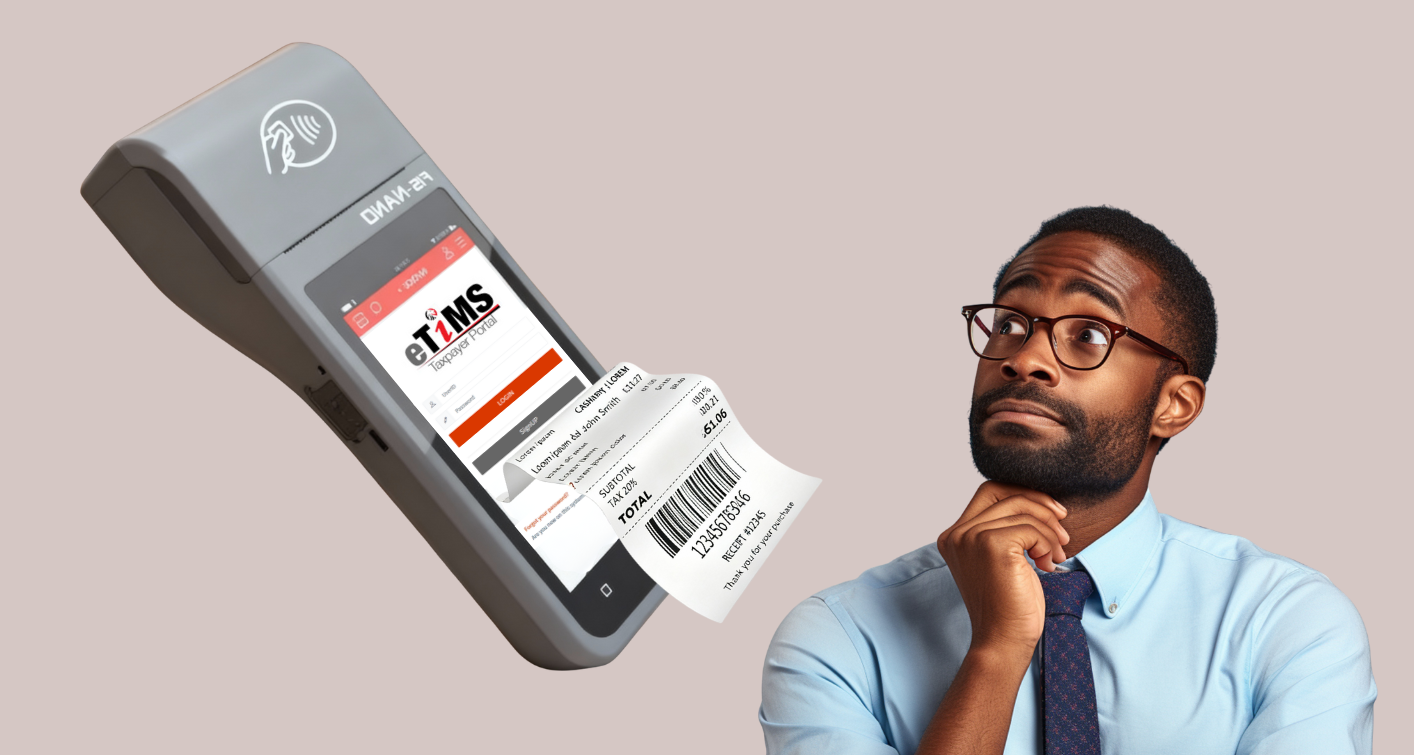The rollout of the Electronic Tax Invoice Management System (eTIMS) has been one of the most significant transformations in Kenya’s tax compliance landscape. While many still believe that eTIMS is only mandatory for VAT-registered businesses, effective 1st September 2023, eTIMS became mandatory for all businesses.
What is eTIMS?
eTIMS is a digital invoicing system introduced by the Kenya Revenue Authority (KRA) to enhance tax compliance, curb tax evasion, and promote transparency in business transactions.
In 2016, KRA discovered that taxpayers were claiming input VAT despite the absence of genuine purchase documents. Investigations revealed that some taxpayers did, in fact, issue tax invoices as part of fraudulent schemes involving so-called “missing traders.”
To address this, KRA launched the Tax Invoice Management System (TIMS) on 1st August 2021, which required VAT-registered businesses to integrate Electronic Tax Register (ETR) machines with their billing systems, ensuring every invoice was traceable.
Recognizing the need for greater flexibility, KRA later introduced eTIMS, a software-based alternative that allows businesses to issue and manage tax invoices using electronic devices such as computers and mobile apps. This offered greater convenience and accessibility.
The Finance Act, 2023 stipulates that any expenditure or loss for which invoices are not generated through the eTIMS shall not be deductible against revenue, except for transactions exempted by law.
Consequently, from 1st September 2023, eTIMS became mandatory for all taxpayers engaged in business, not just VAT-registered persons. KRA reaffirmed this through a Public Notice stating that from 1st January 2024, only eTIMS-compliant invoices will be recognized for corporation income tax deductions.
Who Must Comply with eTIMS?
All persons engaged in business, including:
i. Non-VAT registered persons
ii. Professionals and consultants
iii. Sole proprietors
iv. Partnerships
v. Limited companies
vi. Informal sector traders
Common Misconceptions regarding eTIMS
“It’s only for VAT-registered persons.” Not anymore. All businesses, regardless of VAT registration, must onboard to eTIMS.
“Small businesses are exempt.” While reverse invoicing applies for small enterprises (annual turnover below KSh 5 million), all persons in business are still required to onboard and issue eTIMS invoices where applicable.
Why eTIMS Matters for All Businesses
i. Deductibility of Expenses – Only expenses backed by eTIMS-compliant invoices are allowable for tax purposes.
ii. Business Continuity – Companies prefer transacting with eTIMS-compliant suppliers to preserve their own deductibility.
iii. Penalty Avoidance – Non-compliance attracts penalties, disallowed expenses, and greater audit scrutiny.
iv. Ease of Filing – eTIMS automates invoice transmission, easing bookkeeping and tax filing.
v. Proof of Transactions – eTIMS invoices serve as verifiable evidence of business dealings.
Exemptions under the Tax Procedures Act
Section 23 of the Tax Procedures Act exempts specific transactions from eTIMS requirements, including:
i. Emoluments
ii. Imports
iii. Interest payments
iv. Investment allowance transactions
v. Airline passenger ticketing
vi. Transactions subject to final withholding tax
How to Onboard to eTIMS
KRA provides several onboarding options:
1. Online Portal Access – For SMEs and service providers.
2. eTIMS Client Software – For businesses with internal accounting systems.
3. API Integration – For ERP-based enterprises.
4. Mobile App (eTIMS Lite) – For small traders and professionals.
Recent Developments: Enhanced Tax Compliance Certificate (TCC) Requirements
In a recent public notice dated 24th October 2025, KRA enhanced the Tax Compliance Certificate (TCC) application process to align with eTIMS implementation.
Effective immediately, compliance with eTIMS/TIMS registration is now a mandatory condition for:
· Non-individual entities (companies, partnerships, etc.); and
· Individuals with income other than employment income.
Taxpayers seeking a TCC must therefore:
1. Be fully registered on eTIMS/TIMS (where engaged in business); and
2. Remain compliant with all other tax obligations, including filing and payment.
This update reinforces KRA’s move towards full digital compliance and serves as a reminder that eTIMS registration is not only about invoicing, it’s now a prerequisite for being recognized as tax compliant.
Final Thoughts
Whether you are a consultant, boutique owner, boda boda spare parts dealer, or IT freelancer, eTIMS is not optional, it’s now an integral part of Kenya’s digital tax infrastructure. Ignorance of this requirement is no longer a defence.
Businesses should promptly register and comply with eTIMS to safeguard expense deductibility, avoid penalties, and maintain good standing with KRA.
How We Can Assist
Need help navigating eTIMS or TCC compliance? CM Advocates LLP offers:
· Onboarding & Setup – Seamless eTIMS registration and integration.
· Training & Capacity Building – Hands-on guidance for your team.
· Transaction Advisory – Clarification on invoicing and exemptions.
· Compliance Monitoring – Ongoing support to meet KRA obligations.
· Tailored Business Solutions – Customized for SMEs, professionals, and corporates alike.
At CM Advocates LLP, we simplify compliance so you can focus on growing your business with confidence.
Wanjiku Kiguatha: wkiguatha@cmadvocates.com
Tabitha Muchiri: tmuchiri@cmadvocates.com
